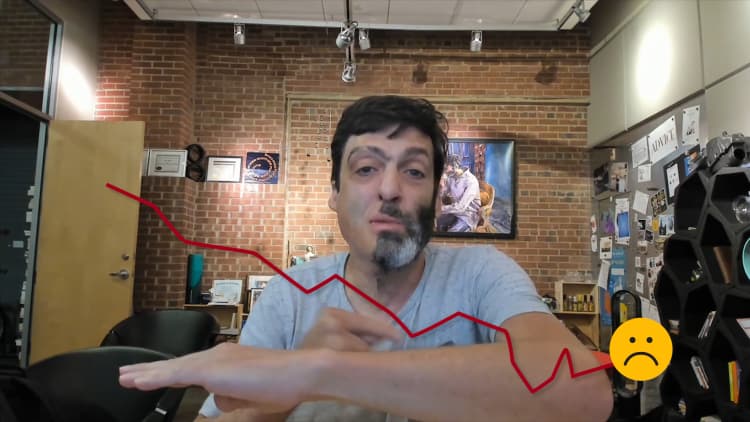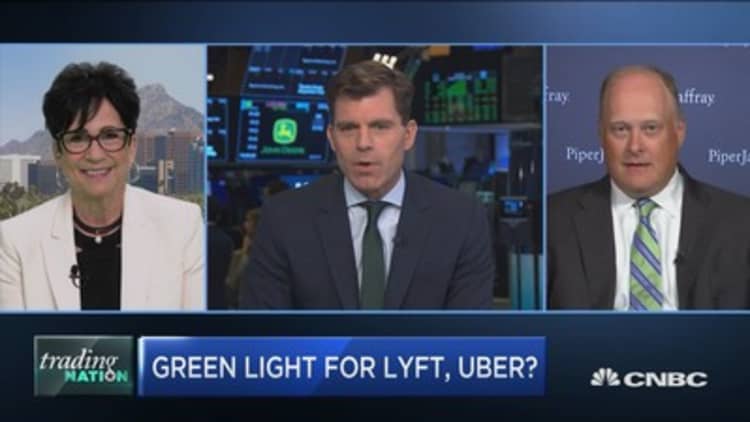Shares of Uber and Lyft fell to fresh lows on Tuesday, posting their lowest close ever, as the ride-hailing companies face growing skepticism from investors.
Uber closed down 5.7% to $30.70, falling below its previous low of $32.57 on Aug. 30. Earlier in the day, the shares hit an intraday all-time low of $30.67.
Lyft experienced a similarly steep drop, ending the day down 7.2% to $45.42, compared to its previous low of $48.15 on May 13. The stock dropped as low as $45.40 on Tuesday, touching a new intraday low.
Both companies have had a particularly rough ride on the public markets since their respective IPOs earlier this year, as investors continue to question whether Uber or Lyft can achieve profitability in the future. Uber and Lyft were trading on Tuesday more than 30% below their IPO prices of $45 and $72 a share, respectively.
Uber reported a net loss of $5.24 billion for its second quarter of 2019, blaming stock-based compensation costs. By comparison, Lyft lost $644.2 million in the second quarter, representing a significant jump from the $178.9 million it lost a year earlier.

A proposed California law could also represent a major threat to Uber and Lyft's business models should it pass through the state Senate, as it would force the companies to reclassify their drivers as employees. The bill passed the California Assembly in May and California Gov. Gavin Newsom voiced his support for the bill on Tuesday. Meanwhile, Uber and Lyft have pledged $60 million to a ballot measure that would keep drivers' classification as contractors.
Lyft and Uber's leadership have tried to assuage investors' concerns about their businesses by painting a path to profitability. Lyft CFO Brian Roberts said he believed peak losses for the company were last year, while Uber CEO Dara Khosrowshahi characterized the second-quarter loss as a "once-in-a-lifetime" hit.
Those efforts have swayed some Wall Street analysts who say the price war between the ride-hailing businesses has eased, indicating Uber and Lyft could turn a profit in the near future. In a Aug. 27 research note, Ronald Josey, an internet analyst at JMP Securities, said said data from a recent survey found many riders don't compare prices between the two services, "highlighting the inelasticity of demand." Josey holds a Market Outperform rating on both Uber and Lyft.
"With fewer users price comparing between services as ride sharing services compete on brand and product, we believe pricing could continue to be rational," Josey said.




